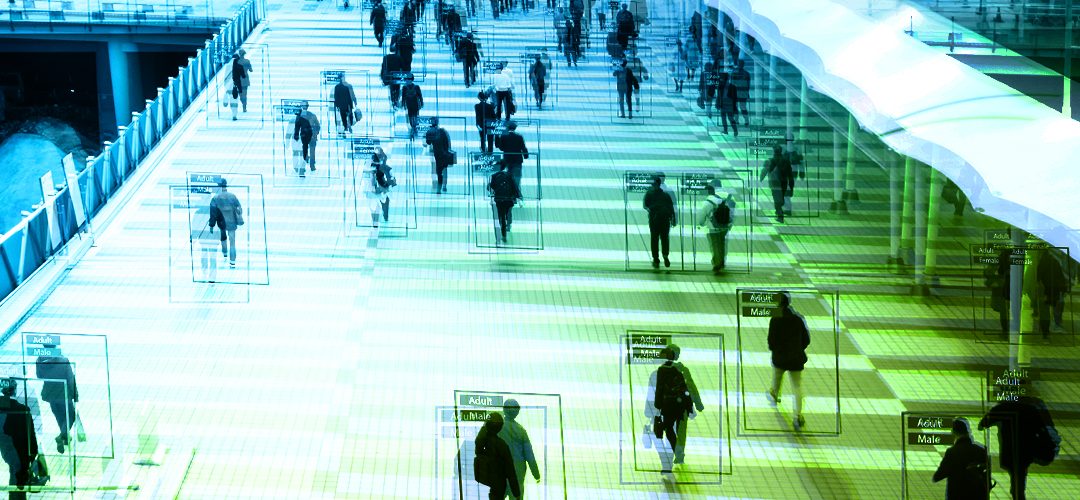Surveillance cameras are supposed to bring us more security. This promise is only partly being fulfilled. Also, however, there is a thin line that turns the camera into a perpetrator, a totalitarian instrument. This is about why we should prevent and punish the crossing of this line.
Heinz Buschkowsky is a well respected personality. For many years he was the mayor of the Berlin district of Neukölln, which at that time was often (and for some reason) called a “problem district”. He’s not the typical law-and-order politician, but one who knew and named the conflicts, especially about Turkish-Arab migration (now of the second and third generation).
For some time now, Buschkowsky has been campaigning for more camera surveillance. For 1.000 cameras at 50 focal points of the city. His alliance can put forward some pretty good arguments: Crimes are apparently not prevented, but there have been spectacular successes in the investigation. Several senseless brutal attacks, such as setting a homeless person on fire or a woman who was stepped down a staircase completely wantonly, caused indignation. In both cases, the publication of video footage led to the perpetrators being found. Even in camera-overcast London, it is mainly the (only) three percent of enlightened criminal cases with which the supporters score points.
Felt security and selective perception
But security is above all a feeling. And therefore it is not crucial that improvements have been implemented, but that they are planned, that there is a prospect of improvement. Every domestic politician has proposals to pull out of the drawer in the event of a crisis and “finally” demand them. He thus protects himself against hostility and turns the cogwheel of the security apparatus one tooth further. Once measures have been taken, they are almost never revoked or checked.
In fact, in the age of social media, perceived security has completely decoupled itself from reality – if there has ever been a connection. Horrific stories are shared and find (thanks to the algorithm) almost enthusiastic interest. The perpetrators are speculated on, revenge fantasised, … In the general hysteria the opinion is rock solid: Everything is getting worse and worse, you can’t go out on the street alone anymore. Anyone who comes along with facts – possibly statistical facts – is at least considered heartless, if not part of a conspiracy. But this does not help the victims, nor does it help sensible prevention.
Cameras have a lot to offer
In addition to exciting pictures, cameras also provide clarification. The much-noticed news about the German extreme right-wing politician Frank Magnitz being attacked “with a timber and being kicked against the head” could be exposed as deliberate exaggeration, even if the perpetrators were not found. Dash- or bodycams of US-American policemen have shown us what is true about accusations of disproportionate violence. The Kashoggy case would have remained a diffuse mystery without the (legal and illegal) camera surveillance of the Turkish government. And last but not least, surveillance cameras keep us entertained, when again some drunkard is mowing down a gas pump. 2:1 for the cameras? Deal with it.
So, “God sees everything” has never worked, crimes will continue undiminished. We will even have to deal with new forms of terrorism, especially staged for surveillance cameras. We will see fake evidence videos and cameras blinded in careful planning of a crime. But our interest in crime detection and entertainment is powerful. This is how we are knitted, we want to see how the cookie crumbles. And, last not least, private cameras are being installed in abundance. So the question “whether we need more camera surveillance” has long been decided.
We need to talk about proportionality. And about data protection.
It’s not only the installation of cameras, it’s also about their operation and evaluation. The evaluation is increasingly done by artificial intelligence, that decides which situation is conspicuous, that analyses our gait, that recognises people. Sound recordings will be introduced next, with more evaluation taking place. Where is someone shouting, where are keywords being used (“help”, …), what exactly is being spoken … The scale leads steplessly into total surveillance, so deliberate limits must be negotiated and defined.
Every reasonable person has a sense that one should not be observed everywhere. In the private sphere, during a walk in the woods or in a café, you want to be able to speak and move freely without being listened to or watched by authorities. But where do we draw the line? Will public space always be monitored in the future? How long do we keep recordings? Who determines what a “focal point” is? Are we doing organised crime a favour by focusing on unorganised crime? Who evaluates the recordings and decides where to intervene?
A clear no-go is the automatic recognition of persons
In China and in the USA, but also in Germany, experiments have been going on for quite some time to identify pedestrians in masses. Not only face recognition plays a role here, but also the gait, other external factors and, of course, the mobile phone. Conspicuous features can quickly be extrapolated here: Person X seems to be excited. Why is person Y today travelling with a foreign mobile phone? Dissident Z has been seen more often with a new person lately.
This sounds exaggerated and at least in the western democracies you wouldn’t accuse even security fans of wanting to go so far. But the incline of desire is well known here. After Germany began recording license plates for motorway tolls, it took exactly no time until investigators wanted to access the data for motion profiling purposes. That is understandable. What is technically feasible is tempting. But it means a concentration of power that we must not tolerate.
Again, “I have nothing to hide” is not an option when it comes to instruments of total surveillance. Because we all benefit from freedom and a pluralistic society.
#Chili: A young woman climbs a pole to destroy a police surveillance camera used to suppress protesters. The crowd then gathers to catch her.#ChileResiste #ChileDesperto
— nonouzi (@Gerrrty) October 29, 2019
pic.twitter.com/bNFPs7uYDn
“But, I love you all.”*
* Erich Mielke, Head of the “Stasi” (Ministery of State Security, GDR), in a desperate attempt to explain his abuse of power
Urgently needed is a sharpened sense of what is legitimate and what violates our freedom. It must not be blackmailed by drastic narrations of crimes that could have been prevented. The same reasons why we refuse torture torture or death penalty apply on unfounded mass surveillance: it’s totalitarian, dangerous, inhuman, unfit and flawed.
And we must no longer treat the violation of privacy as a well-intentioned trivial offence. Whoever contributes to the degradation of our free society, leaves the soil of our constitution. With high officials, this could lead as far as to the offence of treason. People aren’t aware of this, because everyone thinks they are the good guys. And how could their hands be tied while they are trying to hunt down evil terrorists … As long as no-one ever faces a 10-years prison sentence for a privacy violation offence, this issue will not be taken seriously.
So, dear friends, let’s consider it alltoghether:
• No terrorist organisation has ever killed as many victims as state terror.
• Even the most democratic states are not safe from totalitarian change, which may even be democratically legitimised.
• Unfounded movement profiles, eavesdropping etc. are the basis of illegitimate surveillance states.
• Unfounded mass surveillance is not an effective means of preventing violence, combating organised crime or terrorism.
• Terrorism aims at hysteria and that we give up our freedom in favour of security.
• Terror needs strong images and may use surveillance cameras for their purposes.
Cameras must therefore follow technical restrictions that rule out secret observation (red lamp), limit the time of recorded material (2 days? 30 days?) and strictly exclude conversation recordings and person recognition.
“When in doubt, opt for freedom.”**
** Willy Brandt, German chancellor 1969-74
Let’s keep it with Willy Brandt. Let’s put up with not doing something that seriously jeopardises our freedom, even if this could diminish our safety. We have to choose between a sense of security – finally with the equipment of Chinese style slavery – or a rest of insecurity – and the feeling of breathing, speaking and walking freely. Everything in between, everything that does not draw a clear line, is eyewash.
And this enduring of insecurity and personal responsibility – that is freedom.
Postscript:
Unlike many security fans, Heinz Buschkowsky has done a lot in his life to reduce tensions in his district. He didn’t lament, but initiated actions, sought closeness, talked to and argued with people, took them seriously. We need more of this. The German nationalist party AfD has the highest election results where there are the fewest migrants. This shows that they feed on diffuse fear, on distrust of positive crime statistics, on hysteria about every new criminal case.
Anyone who demands “more surveillance cameras” should therefore consider two things:
• Where am I prepared to accept the limits of surveillance, even if they mean less security?
• What can I do to commit myself to peaceful coexistence and to offer a different perspective to the supposed or actual endangers?
<<

